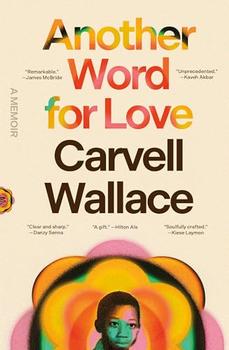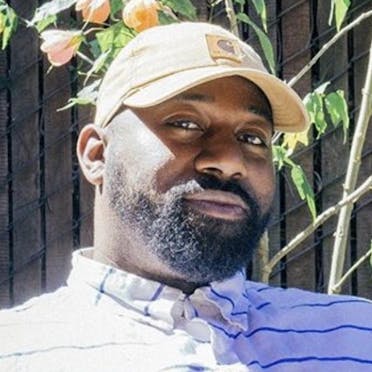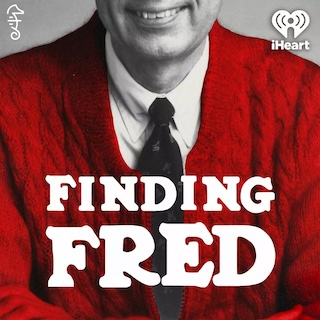Summary | Excerpt | Reviews | Beyond the Book | Read-Alikes | Genres & Themes | Author Bio

A Memoir
by Carvell WallaceThis article relates to Another Word for Love
 Carvell Wallace's debut memoir, Another Word for Love, explores how spirituality and embracing his queer identity helped him heal from childhood trauma. The journalist and podcaster is known for co-writing basketball player Andre Iguodala's 2019 memoir The Sixth Man and for his Peabody Award–nominated podcast series Finding Fred (2019). He lives in Oakland, California and lectures in the Narrative Department at the UC Berkeley School of Journalism. Wallace spoke with BookBrowse's Rebecca Foster about accessing the past and pondering the concept of goodness.
Carvell Wallace's debut memoir, Another Word for Love, explores how spirituality and embracing his queer identity helped him heal from childhood trauma. The journalist and podcaster is known for co-writing basketball player Andre Iguodala's 2019 memoir The Sixth Man and for his Peabody Award–nominated podcast series Finding Fred (2019). He lives in Oakland, California and lectures in the Narrative Department at the UC Berkeley School of Journalism. Wallace spoke with BookBrowse's Rebecca Foster about accessing the past and pondering the concept of goodness.
Rebecca Foster: How did you arrive at the structure of the book? Did you write chronologically, or as scenes came to mind?
Carvell Wallace: The structure of the book evolved over time. I wrote scenes as they came to mind, then once I had about 60 percent of the book, I started to go back and think about how it might be structured to tell the story it was telling. Then once that was decided, it was a matter of going back and writing the missing pieces, connective tissue, etc. The book follows an emotional logic rather than a plot logic, if that makes sense, and that was important to me, as the book was about trauma and recovery, which is not a linear, calendar-based thing in my experience.
RF: When you went back to reinhabit your childhood perspective, were there special rituals you had for dredging up memories? Were photographs and heirlooms helpful to you?
CW: Yes, photographs were extremely helpful, so much so that I wrote about photographs twice in the book. Also, very early in the process I made the decision to buy three Hot Wheels cars and place them on an altar near my desk. The hope was that these would be like talismans that somehow helped me capture the sense memories of those earlier times. Toy cars were an early attachment object for me, especially in the time after my mother left. I hadn't really played with one since childhood, so it seemed like they had everything needed to trigger travel to other times and places. I would say they mostly worked, although maybe the effect was psychosomatic. Nevertheless, probably the most powerful way to access the past for me is to begin writing about the past, and then watch as my subconscious stumbles awake and starts delivering material day after day.
RF: You refer to "god"—but not in a conventionally religious way, and the pattern you've set up, of loss followed by return, seems like a primal spiritual one. How would you describe your beliefs to someone coming from either a traditional faith or a non-supernatural viewpoint?
CW: I suspect this entire book is an attempt to answer that question, but lemme see if I can whittle it down here! First of all, I don't know if it's necessary to believe in a sentient god in order to benefit from a relationship to god. I think the relationship might be more about helpfully understanding one's position in the universe and all that is within it, rather than about forming a special relationship to a single being. What I mean is this: if you go to the ocean and try to make the waves stop, you will immediately have to concede that there is a power greater than you at work. It doesn't matter what anyone calls it, it's just there. So for me that deals with the question of belief. Ok, so if we are in the presence of a greater power, then it would make sense to be in working harmony with that power, with life, the universe, etc., rather than in conflict with it. This requires a realistic understanding of where you fit along the scale of power, in other words a kind of honed understanding and acceptance of what you can or cannot do, where you do or don't have power.
This is not always hard. Most people accept, for example, that they have the power to walk to the top of a mountain but not the power to survive a leap off a cliff. So that's an easy one. But I do think we get a little confused on smaller things, like how much power we have in others' lives, or even aspects of our own. I suspect a lot of harm comes from this, so for me communion with god (greater power) is about constantly learning about how to parse out more carefully what power is mine and what isn't, so that I don't live in unnecessary or unhelpful conflict with myself, the universe, and others. In other words, it helps with humility, which for me is an absolute survival need.
RF: The presentation of queerness is very matter of fact here, not something to be agonized over. Were you pushing back at the idea that the queer coming of age is inherently traumatic?
CW: I was aware that such a presentation might push back on that idea, and I liked that, just because I like complicating things in general. But mostly that was motivated by the fact that I did not agonize a great deal about my queerness overall growing up. I did know that being queer could bring violence to me in certain situations, so I was careful about that. And I knew that some people I grew up with would have trouble with my queerness, but I also had the general experience of being weird and not completely fitting in with the world around me, so the queer thing was really just more of the same in my mind. But internally, queer feelings and same-sex attractions always felt natural and fine to me for the most part, so I didn't have a lot to say about the agony of dealing with them. Also, as a habit, I am suspicious of any mainstream interest in the struggle of marginalized people because often that obsession with the gory details of our struggles can be exploitative, voyeuristic, and can really function to further cement existing power dynamics: we're sad and downtrodden, you're heartbroken and empathetic. Anytime there's an opportunity to realistically disrupt that arrangement, I'm probably gonna be into it.
RF: How did you come to make a podcast series about Fred Rogers, and why was "goodness" something you felt compelled to explore? How would you draw a thread between that project and this book?
 CW: I was asked to work on a podcast that would argue that Fred Rogers can be viewed as a heavyweight philosopher, and I found myself more interested in the question of what his message means in a world of systemic violence, oppression, uprisings for racial justice, etc. I arrived at goodness because the concept seemed to me the clearest distillation of what made him both fascinating and slippery to the rest of us. He is good. That's odd to us because … it's like … are we? I think that most people in the privacy of their truest selves would concede that this simple question may have a complicated answer. So then I started wondering what real human ways of being are available to us who want to be good? What is the actual practice?
CW: I was asked to work on a podcast that would argue that Fred Rogers can be viewed as a heavyweight philosopher, and I found myself more interested in the question of what his message means in a world of systemic violence, oppression, uprisings for racial justice, etc. I arrived at goodness because the concept seemed to me the clearest distillation of what made him both fascinating and slippery to the rest of us. He is good. That's odd to us because … it's like … are we? I think that most people in the privacy of their truest selves would concede that this simple question may have a complicated answer. So then I started wondering what real human ways of being are available to us who want to be good? What is the actual practice?
There was a lot with Fred Rogers to answer this question, but one answer that really struck me was his practice of listening to quiet voices and being present with small feelings. He listened to children, he made it a point to be aware of their doubts and wishes, and interests and fears. Coming from the era of "children are to be seen and not heard," this was pretty radical and hard-won wisdom for him. I also came to believe, after the research for the show, that he arrived at this strategy really as a part of his spiritual practice. He felt, it seems, that the voice of god spoke quietly just as often as it spoke with thunder. I really liked that idea, and it became kind of a foundational concept in my book.
Finding Fred promotional image, courtesy of iHeart Radio
Carvell Wallace, courtesy of the author
Filed under Books and Authors
![]() This "beyond the book article" relates to Another Word for Love. It originally ran in June 2024 and has been updated for the
May 2025 paperback edition.
Go to magazine.
This "beyond the book article" relates to Another Word for Love. It originally ran in June 2024 and has been updated for the
May 2025 paperback edition.
Go to magazine.
Your guide toexceptional books
BookBrowse seeks out and recommends the best in contemporary fiction and nonfiction—books that not only engage and entertain but also deepen our understanding of ourselves and the world around us.